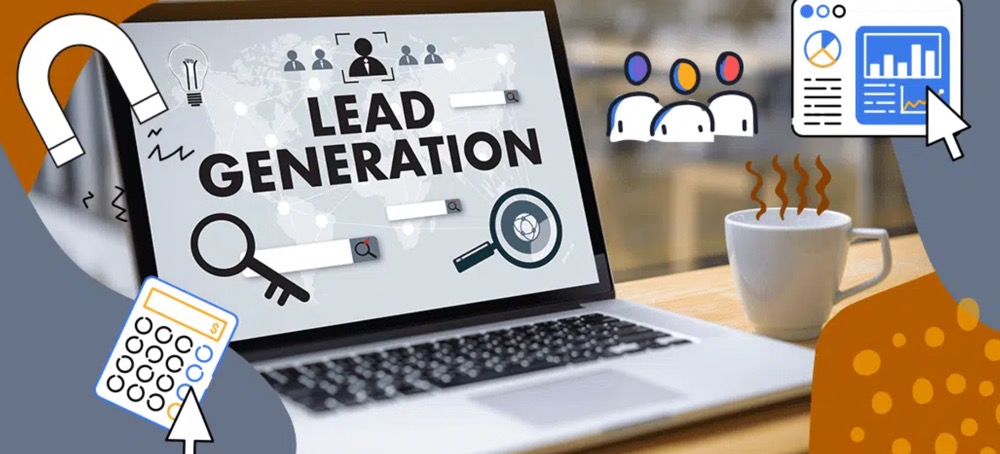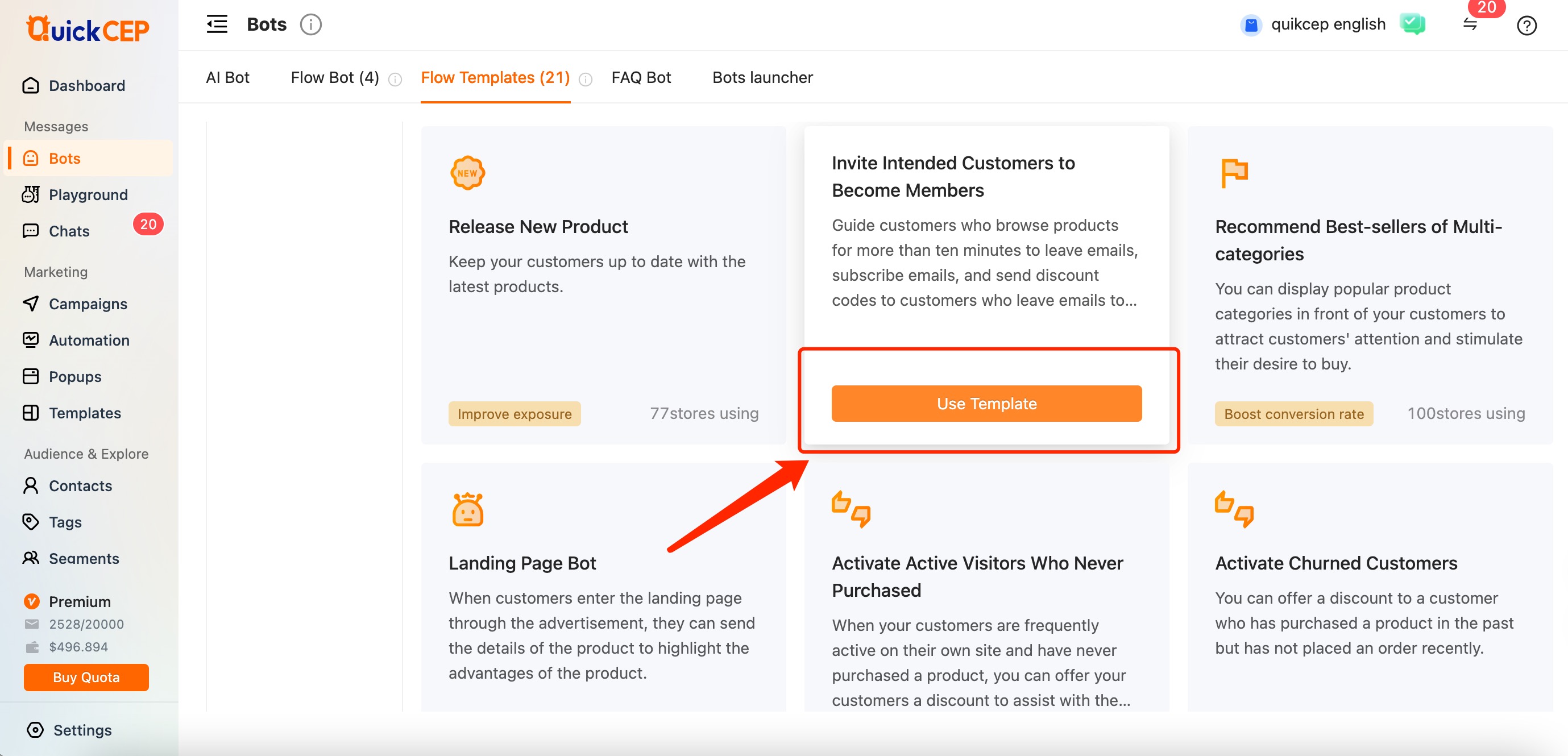Chatbots vs. Traditional Methods: 5 Superb Ways for Lead Generation

Introduction to Chatbots and Lead Generation
The landscape of lead generation has undergone a significant transformation over the years. Initially reliant on human interaction, the process has now evolved to incorporate AI assistance, marking a pivotal shift in approach.
In the realm of modern marketing, chatbots have emerged as key players, fundamentally altering the dynamics of lead generation. Their integration with AI technology has revolutionized the way businesses engage with potential customers, paving the way for more efficient and personalized interactions.
1. Instant Engagement with Website Visitors
In the realm of customer interaction, Chatbots stand at the forefront, serving as the initial point of contact for website visitors. Their ability to provide immediate responses and assistance plays a pivotal role in shaping the first impressions of potential leads. By offering swift and relevant information, Chatbots contribute to creating a positive user experience, thereby increasing the likelihood of lead conversion.

On the other hand, traditional methods often grapple with the delayed response dilemma. The impact of prolonged waiting periods on lead generation cannot be understated. Potential leads may lose interest or seek out competitors if they do not receive timely engagement. This delay can significantly hinder the effectiveness of traditional methods in capturing and nurturing leads.
2. Personalized User Experiences
In the realm of personalized user experiences, Chatbots excel in tailoring conversations for each visitor, thereby enhancing the lead generation process. The ability to customize interactions based on individual preferences and behaviors holds immense power in establishing meaningful connections with potential leads. By leveraging AI-driven insights, Chatbots can adapt their approach to resonate with the specific needs and interests of each visitor, ultimately increasing the likelihood of successful lead conversion.
Conversely, traditional methods often adopt a one-size-fits-all approach when engaging with prospects. This generic interaction model comes with inherent limitations, as it fails to address the diverse requirements and expectations of individual visitors. Without personalization, the effectiveness of traditional methods in nurturing leads diminishes, leading to missed opportunities for meaningful engagement and conversion.
3. 24/7 Availability for Lead Capture
In the realm of lead capture, Chatbots offer a distinct advantage with their unwavering availability, ensuring that no opportunity goes unaddressed. The constant presence of Chatbots transcends the limitations of business hours, maximizing engagement and lead acquisition even during non-traditional timeframes.
Chatbots: Always On, Always Ready
Chatbots operate round the clock, catering to the needs of website visitors regardless of the time of day. This perpetual availability not only facilitates immediate responses but also enables businesses to capture leads at any hour, thereby expanding their potential customer base.
Maximizing Opportunities Outside Business Hours
The ability of Chatbots to engage with prospects outside regular working hours opens up new avenues for lead generation. By seizing opportunities that extend beyond conventional time constraints, businesses can establish meaningful connections and initiate the lead nurturing process without delay.
Traditional Methods: Missing Leads After Hours
Conversely, traditional methods are bound by time restrictions, often resulting in missed opportunities for lead capture during non-business hours. The inability to promptly address inquiries or provide information outside standard operating times can lead to a loss of potential leads and hinder the effectiveness of traditional lead generation approaches.
The Cost of Time Restrictions
The constraints imposed by limited availability translate into tangible costs for businesses relying on traditional methods. Missed leads during after-hours periods represent a lost opportunity for engagement and conversion, underscoring the significance of 24/7 availability in optimizing lead capture efforts.
4. Efficient Lead Qualification Process
In the realm of lead qualification, Chatbots play a pivotal role in streamlining the process through the utilization of AI technology. By harnessing the power of artificial intelligence, Chatbots can swiftly and accurately identify potential customers based on predefined criteria and behavioral patterns. This automated approach not only expedites the lead qualification process but also ensures a higher degree of precision in targeting prospects with genuine interest and intent.
Chatbots: Streamlining Lead Qualification
Chatbots leverage AI algorithms to analyze user interactions, discerning key indicators that signal a prospect's readiness for further engagement. Through continuous learning and adaptation, these AI-driven systems can effectively categorize leads based on their likelihood to convert, enabling businesses to prioritize their outreach efforts and resources accordingly. The seamless integration of AI into lead qualification empowers Chatbots to serve as efficient gatekeepers, filtering out unqualified leads while directing valuable prospects towards conversion pathways.
Using AI to Identify Potential Customers
The integration of AI within Chatbots enables them to intelligently assess user behavior, identifying signals indicative of genuine interest and purchase intent. By analyzing data points such as browsing history, interaction frequency, and specific inquiries, Chatbots can discern patterns that align with characteristics typical of high-quality leads. This proactive approach not only expedites the identification of promising prospects but also minimizes the reliance on manual assessment processes prone to human error and subjectivity.
Traditional Methods: Manual and Time-Consuming Processes
Conversely, traditional methods often entail manual lead qualification processes that are inherently time-consuming and susceptible to human error. The reliance on individuals to assess and categorize leads introduces significant delays and inconsistencies, hindering the overall efficiency of the qualification process. Furthermore, the subjective nature of manual assessments may result in missed opportunities or misclassification of leads, leading to suboptimal allocation of resources for nurturing potential customers.
The Drawbacks of Human Error and Delays
The manual nature of traditional lead qualification processes leaves them vulnerable to human error, potentially resulting in misjudgments regarding a prospect's readiness for conversion. These inaccuracies can impede the progression of leads through the sales funnel, leading to inefficiencies in resource allocation and missed opportunities for timely engagement. Additionally, the inherent delays associated with manual assessments can diminish the agility required in today's dynamic market landscape, underscoring the need for more streamlined and automated approaches exemplified by Chatbots.
5. Seamless Integration with Marketing Tools
In the realm of connecting with your marketing ecosystem, Chatbots serve as a pivotal link, seamlessly integrating with various marketing tools to enhance campaign effectiveness and drive informed decision-making.
Chatbots: Connecting with Your Marketing Ecosystem
Chatbots function as more than just conversational interfaces; they are integral components of a comprehensive marketing ecosystem. By interfacing with customer relationship management (CRM) systems, email marketing platforms, and analytics tools, Chatbots enable businesses to gather valuable insights and leverage AI-driven data for targeted campaigns.
Enhancing Campaigns with AI Insights
The integration of Chatbots within the marketing toolkit empowers businesses to harness AI insights for campaign optimization. Through the analysis of user interactions and preferences, Chatbots can provide invaluable data regarding customer behavior and engagement patterns. This wealth of information equips marketers with the knowledge needed to tailor their campaigns effectively, ensuring that messaging resonates with target audiences and drives meaningful interactions.
Traditional Methods: The Challenge of Integration
Conversely, traditional lead generation methods often grapple with the challenge of seamless integration within the broader marketing landscape. Siloed approaches hinder the cohesive flow of data and insights across different facets of marketing efforts, leading to fragmented visibility and limited synergy between lead generation initiatives and overarching campaign strategies.
Overcoming Silos in Lead Generation Efforts
Traditional methods face inherent barriers in overcoming silos within lead generation efforts. The disjointed nature of disparate tools and processes impedes the holistic understanding of customer interactions and behaviors, limiting the ability to derive actionable insights for campaign refinement. As a result, traditional methods may struggle to capitalize on integrated data-driven strategies that optimize lead generation outcomes within the broader marketing framework.
Conclusion: Reflecting on the Future of Lead Generation
As the landscape of lead generation continues to evolve, it becomes increasingly evident that Chatbots offer unparalleled advantages over traditional methods. The seamless integration of AI technology has empowered Chatbots to redefine the dynamics of customer engagement and lead acquisition, setting a new standard for marketing effectiveness.
The Advantages of Chatbots Over Traditional Methods
The transformative impact of Chatbots on lead generation is underscored by their ability to provide instant engagement, personalized user experiences, and 24/7 availability for lead capture. By streamlining the lead qualification process and seamlessly integrating with marketing tools, Chatbots have demonstrated their capacity to enhance conversion pathways and optimize campaign effectiveness.
Looking Ahead: The Role of AI in Marketing
As businesses navigate the future of lead generation, the pivotal role of AI in shaping marketing strategies cannot be overstated. With Chatbots at the forefront, leveraging AI insights for targeted campaigns and data-driven decision-making will be integral to driving meaningful interactions and fostering long-term customer relationships.


